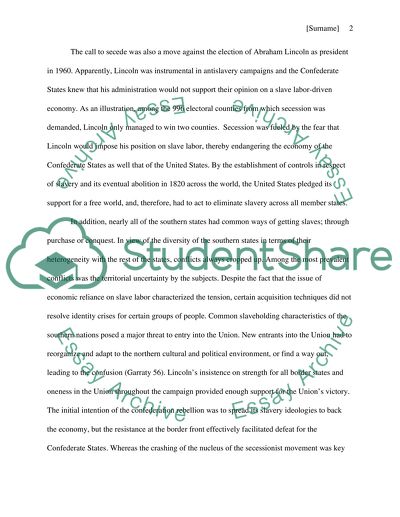Cite this document
(“American Civil War Essay Example | Topics and Well Written Essays - 1250 words”, n.d.)
Retrieved from https://studentshare.org/history/1452520-the-south
Retrieved from https://studentshare.org/history/1452520-the-south
(American Civil War Essay Example | Topics and Well Written Essays - 1250 Words)
https://studentshare.org/history/1452520-the-south.
https://studentshare.org/history/1452520-the-south.
“American Civil War Essay Example | Topics and Well Written Essays - 1250 Words”, n.d. https://studentshare.org/history/1452520-the-south.


